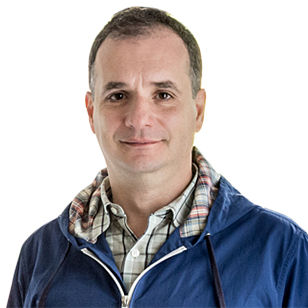Objectives
Abstract: Modern artificial intelligence (AI) and machine learning (ML) techniques predict system behavior from previous observations. However, in biology, and in true complex systems in general, profound transformation in system behavior can occur from never before seen observations. Moreover, AI/ML techniques are often unable to provide an explanation for their predictions. I will argue that complex systems modeling, while using AI/ML techniques to estimate parameters, needs to produce actionable, dynamical models that can predict and explain system behavior for rare or unseen control events. This is particularly true for understanding biochemical regulation under dynamical perturbations from environmental and evolutionary events. Towards that goal, I will present our recent work uncovering effective control pathways in the canalizing dynamics of biochemical regulation. Our methodology centers on removing redundancy from systems biology models of development, cell cycle, and cancer response, as well as in models of cortical networks cultured from mouse brains. Removing the large amounts of redundancy in these models, reveals preferred pathways for the spread of perturbations and the building blocks of dynamical response, leading to the prediction of actionable control interventions.
 Short bio: Luis M. Rocha is Professor of Informatics in the School of Informatics, Computing, and Engineering at Indiana University, Bloomington, where he is director of the NSF-NRT Interdisciplinary Training Program in Complex Networks and Systems, director of the Complex Networks and Systems track of the Informatics PhD Program, member of the advisory council of the Indiana University Network Science Institute, and core faculty of the Cognitive Science Program. Dr. Rocha is a Fulbright Scholar and is Principal Investigator at the Instituto Gulbenkian da Ciencia and Visiting Professor at the NOVA School of Business and Economics in Portugal. He has been a Visiting Professor a the Center for Theoretical Physics at the Aix-Marseille University, France as well as the Neuroscience Program, at the Champalimaud Foundation in Portugal. His research is on complex networks & systems, computational & systems biology, and computational intelligence. He received his Ph.D in Systems Science in 1997 from the State University of New York at Binghamton. From 1998 to 2004 he was a permanent staff scientist at the Los Alamos National Laboratory, where he founded and led a Complex Systems Modeling Team during 1998-2002, and was part of the Santa Fe Institute research community. He has organized major conferences in the field such as the Tenth International Conference on the Simulation and Synthesis of Living Systems (Alife X), the Ninth European Conference on Artificial Life (ECAL 2007), and Complex Networks 2019. He has published many articles in scientific and technology journals, and has been the recipient of several scholarships and awards. At Indiana University, he has received the Indiana University, School of Informatics & Computing, Trustees Award for Teaching Excellence in 2006 and 2015 after developing the complex systems training program and syllabi for several courses.
Short bio: Luis M. Rocha is Professor of Informatics in the School of Informatics, Computing, and Engineering at Indiana University, Bloomington, where he is director of the NSF-NRT Interdisciplinary Training Program in Complex Networks and Systems, director of the Complex Networks and Systems track of the Informatics PhD Program, member of the advisory council of the Indiana University Network Science Institute, and core faculty of the Cognitive Science Program. Dr. Rocha is a Fulbright Scholar and is Principal Investigator at the Instituto Gulbenkian da Ciencia and Visiting Professor at the NOVA School of Business and Economics in Portugal. He has been a Visiting Professor a the Center for Theoretical Physics at the Aix-Marseille University, France as well as the Neuroscience Program, at the Champalimaud Foundation in Portugal. His research is on complex networks & systems, computational & systems biology, and computational intelligence. He received his Ph.D in Systems Science in 1997 from the State University of New York at Binghamton. From 1998 to 2004 he was a permanent staff scientist at the Los Alamos National Laboratory, where he founded and led a Complex Systems Modeling Team during 1998-2002, and was part of the Santa Fe Institute research community. He has organized major conferences in the field such as the Tenth International Conference on the Simulation and Synthesis of Living Systems (Alife X), the Ninth European Conference on Artificial Life (ECAL 2007), and Complex Networks 2019. He has published many articles in scientific and technology journals, and has been the recipient of several scholarships and awards. At Indiana University, he has received the Indiana University, School of Informatics & Computing, Trustees Award for Teaching Excellence in 2006 and 2015 after developing the complex systems training program and syllabi for several courses.


